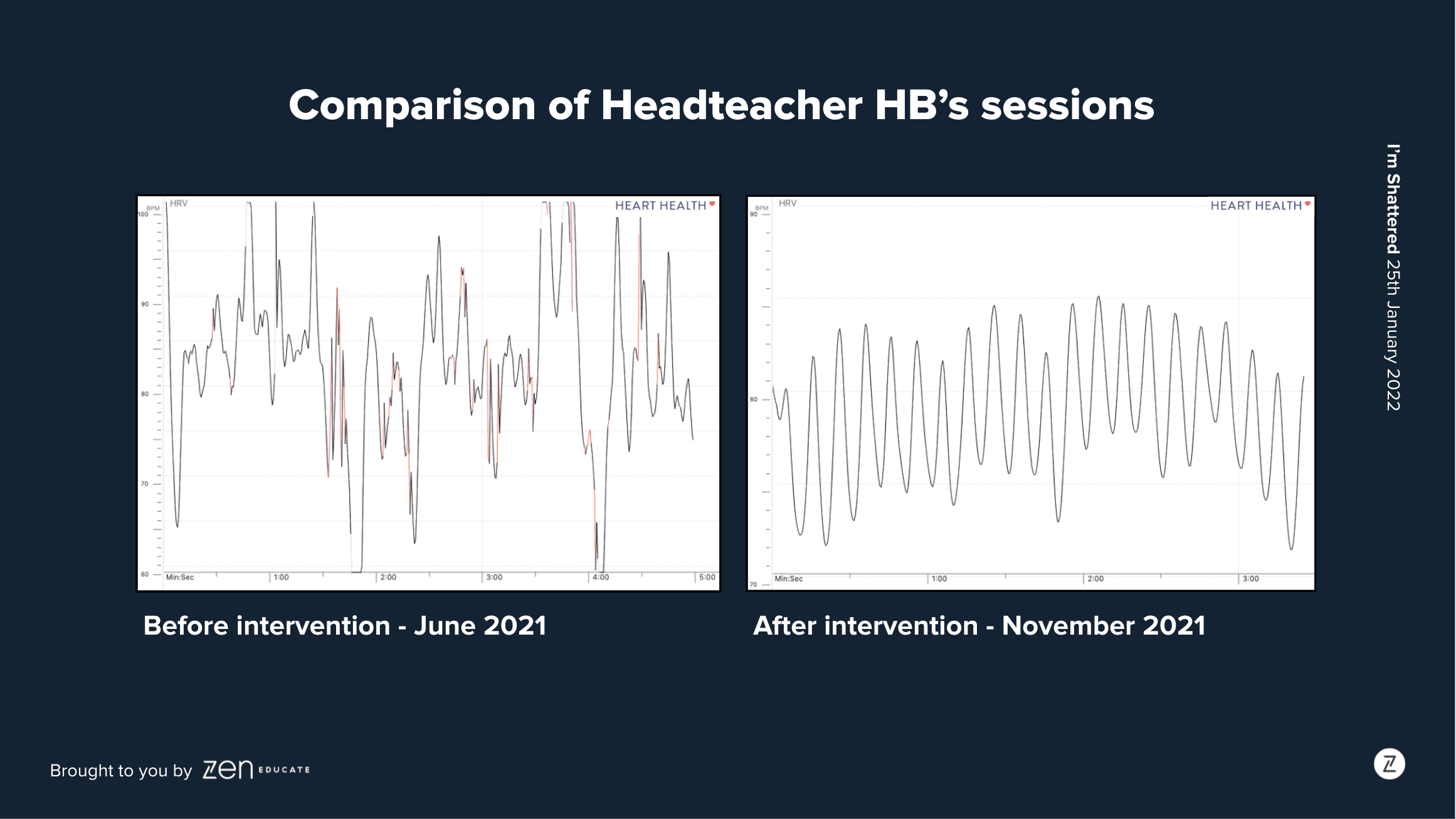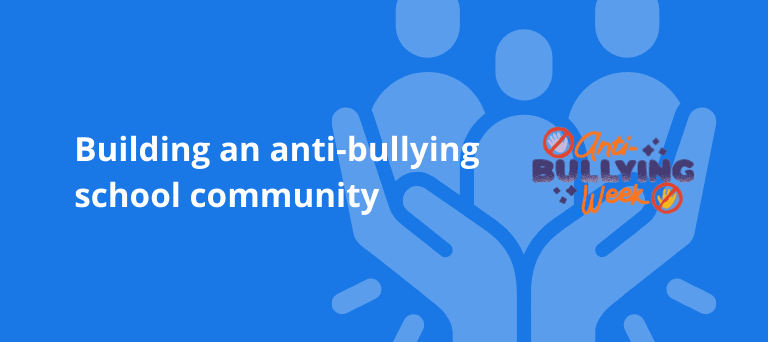As part of our Wellbeing January, we hosted our I’m Shattered! webinar, exploring professional wellbeing support for school leaders, higher quality sleep, the relationship between stress and heart health, and much more.
Our host for the event was Helen Woodward (VP of People at Zen and former Head of School Improvement at the DfE), and she was joined by two guest speakers:
Maria Brosnan (Leadership and Wellbeing Specialist and Founder of Pursuit Wellbeing)
Sinead Mc Brearty (CEO of Education Support)
You can find the hour-long webinar in full at the bottom of this page, but here is a summary of just a few of the points made by our panel:
The value of interventions
Maria began with some data around heart health and stress, and how interventions can help to improve heart health.
“We've done this really interesting piece of work with 12 Headteachers in the local authority of Essex, and this is one of the Headteachers, who we’ve called HB. (...) On the Y axis is the heart rate in beats per minute. As you can see, by November, she's much, much more able to self regulate her system. And what we're looking at here is called ‘cardiac coherence’.”

What kind of intense interventions must HB have applied to regulate her heart rate so much over just a few months? Maria explained that a simple, back-to-basics approach is sometimes all that’s needed for the kind of results displayed above:
“There are some very simple interventions you can do to actually take care of not just the health of your heart, but your overall health and wellbeing as well. (...) How do we incorporate practices into our day? I really like this mnemonic of MENDS.”
M - Mindfulness
E - Exercise
N - Nature
D - Diet
S - Sleep
“MENDS help you prioritise your wellbeing basics. So these are the things that really make a meaningful difference, and there’s a massive amount of research around every single one of these. So having some kind of mindfulness practice; some kind of breathing practice, meditation, any kind of short practice between five to ten minutes a day. There's tons of apps available to help guide you. But I would really recommend some kind of mindfulness practice, exercise, of course, please do something that you enjoy. Don't drag yourself to the gym and hate every minute of it, do something that you enjoy.”
“Get out into nature as much as you can, even if that just means getting out into the playground and getting some fresh air. But if you can, on the weekends or in the evenings as they start to get brighter at some point, get out into nature. It's so grounding and so balancing for us not just for our nervous systems, but for our whole well being. Take care of your diet. When it's cold and damp, lots of rich soups and stew, things that are really nourishing. And please prioritise sleep, it's the one thing that will make the most difference. I've written a book called The Pursuit of Sleep for teachers and leaders. Making sure you get a good 7-9 hours of sleep every night will make a world of difference to your health and wellbeing.’
For more from Maria on stress, sleep and heart health, listen to this 10 with Zen podcast episode.
Drivers of stress
Sinead detailed her observations of the most common causes of stress in school leaders:
“I think it's important – particularly for anyone with a management role in schools – to understand what the drivers for stress most typically are in schools. And you have to bear in mind, of course, everybody's individual, so this isn't universal. But there are really big themes that come out year after year after year at very high levels that are affecting the workforce.”
These drivers are identified by Sinead as workload size, work/life balance, pupil behaviour, the responsibilities of line management and, more recently, the consequences of the COVID-19 pandemic.
“With workload, of course, it’s not just volume, but the intensity of workload and the type of workload. We all know there are jobs you have to do that just don't just don't feel like work. And there are others where you would really rather bang your forehead against a wall for 10 minutes than have to do them! And that affects us on the inside, it’s meaningful. With work/life balance, beep, and specifically here, again, what comes through with the research is people feeling like they can't switch off. And I think that's a very corrosive aspect of how life has changed under the pandemic and something we need to come back and attend to, in order to allow people to release stress properly.”
“The social consequences of the pandemic have been enormous for schools, as we all know. Pupil behaviour is a driver for stress in many schools, again, not the particular behaviour of a student, but the coherence or lack of coherence in a school's policy around behaviour is what causes the stress and the dissonance for an individual teacher. And, finally, line management. And this is a big, big one for everybody in any workplace, the quality of our line management relationships. It’s the difference between feeling satisfied at work and not. If we are working with someone who we have a positive relationship with, then often our work experience feels pretty good. If we're being managed by someone and there is really no connection, or worse, there might be unpleasantness in that relationship, that is probably the most corrosive of all of these drivers for individual well being or lack thereof in a school environment.”
Follow Maria on Twitter
Follow Sinead on Twitter
Follow Zen Educate on Twitter
Listen to Zen Educate’s 10 with Zen podcast
We’d like to thank Maria, Sinead and Helen for taking part in this webinar. You can watch the hour long webinar in full below.
Search blog posts …
Search







